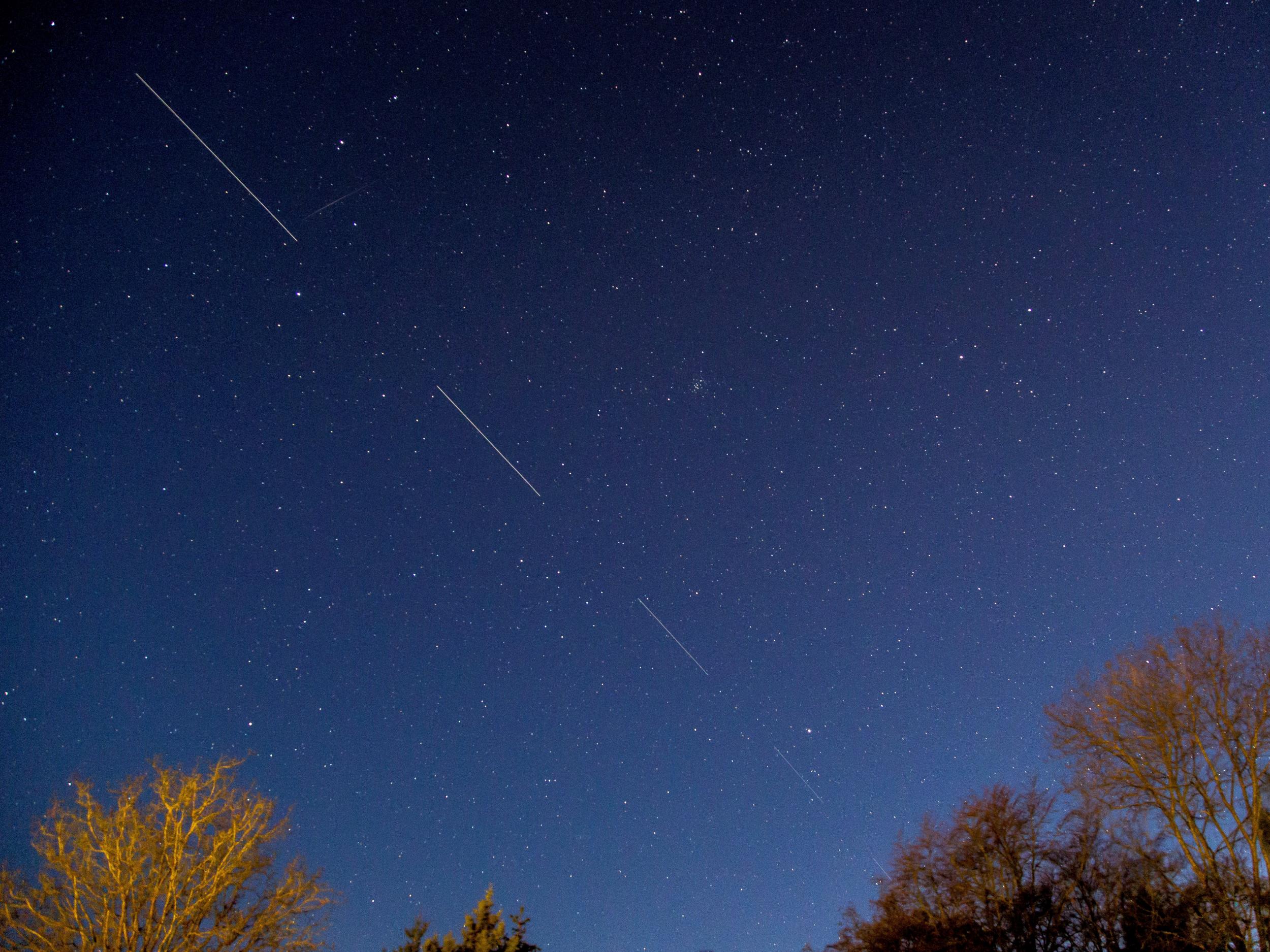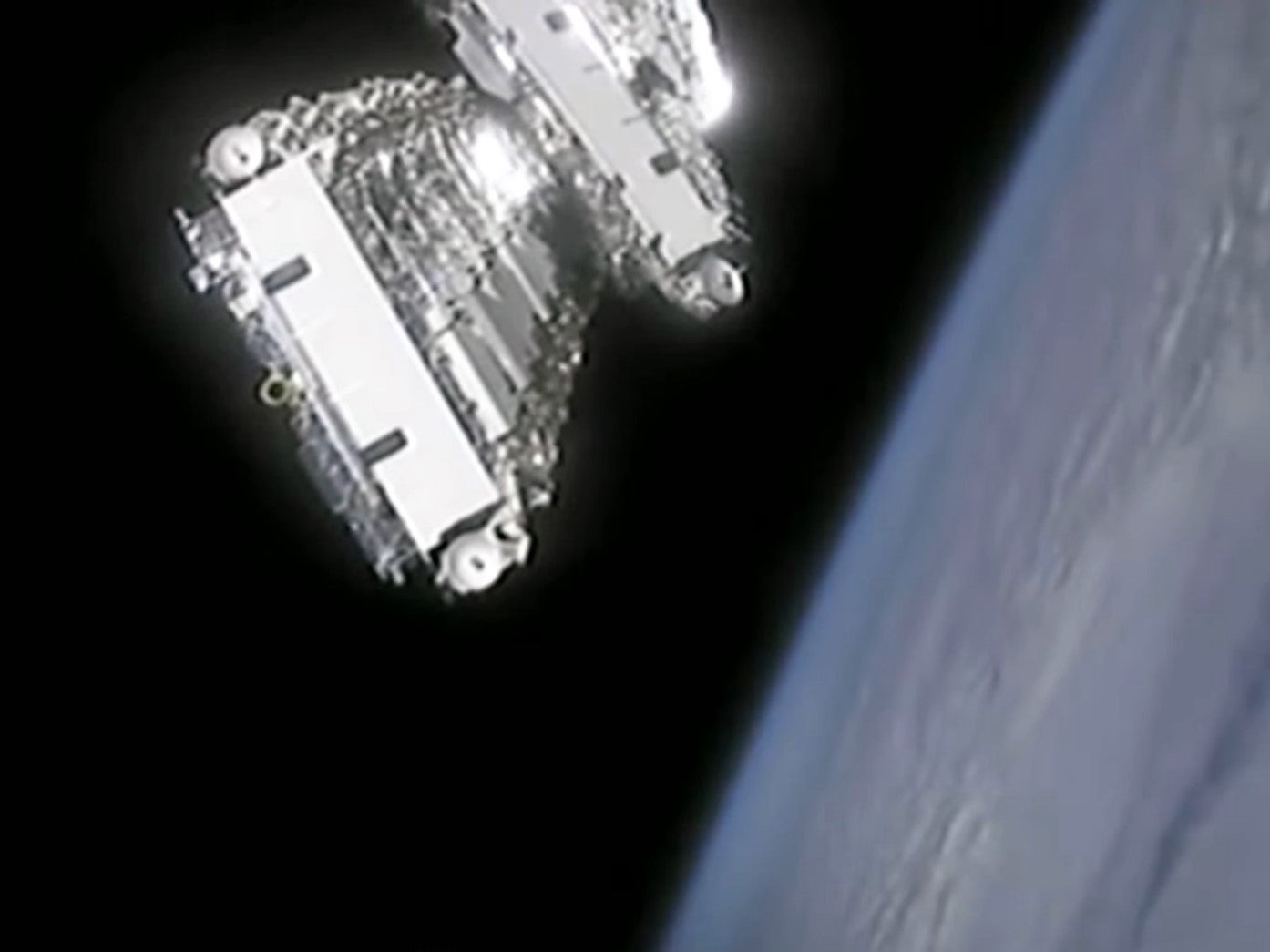Elon Musk says he’s ‘fixing’ Starlink satellites to be invisible and asks people to hack them
SpaceX boss says all satellites will get sunshades to hide them after 'string of bright pearls' prompt UFO sightings

Your support helps us to tell the story
From reproductive rights to climate change to Big Tech, The Independent is on the ground when the story is developing. Whether it's investigating the financials of Elon Musk's pro-Trump PAC or producing our latest documentary, 'The A Word', which shines a light on the American women fighting for reproductive rights, we know how important it is to parse out the facts from the messaging.
At such a critical moment in US history, we need reporters on the ground. Your donation allows us to keep sending journalists to speak to both sides of the story.
The Independent is trusted by Americans across the entire political spectrum. And unlike many other quality news outlets, we choose not to lock Americans out of our reporting and analysis with paywalls. We believe quality journalism should be available to everyone, paid for by those who can afford it.
Your support makes all the difference.SpaceX boss Elon Musk said he is working on a solution to make the swarms of satellites recently launched by the company less visible in the night sky.
The latest batch of 60 Starlink satellites were deployed into orbit on Wednesday and will eventually form part of a 12,000-strong constellation designed to beam high-speed internet down to Earth.
Satellites from previous launches appeared in a long train sweeping overhead this week, prompting a flurry of UFO reports. Their unusual formation has been described by astronomers as a "string of bright pearls" and are clearly visible when they are angled in such a way that they reflect light from the Sun.
This could potentially cause disruption for optical telescopes and may even block sightings of Earth-bound asteroids, according to some astronomers.
"We're fixing it now," Mr Musk tweeted following the latest launch. "We are taking some key steps to reduce satellite brightness... Should be much less noticeable during orbit raise by changing solar panel angle and all satellites get sunshades starting with launch nine."
To hide the satellites from ground-based observers, SpaceX will paint the base of the satellites black. The company is also working with the US National Radio Astronomy Observatory and the European radio astronomy community in order to mitigate any impact on radio astronomy activities.
The Starlink internet has already been tested by Mr Musk, who posted a tweet through it in November, but before it is made public later this year he invited people to attempt to hack the network.

SpaceX previously played down the risk of interference in astronomical observations posed by the Starlink satellites. Speaking at the Satellite 2020 conference in March, Mr Musk said that such concerns were being exaggerated.
"I am confident that we will not cause any impact whatsoever in astronomical discoveries, zero. That's my prediction," he said. "We will take corrective action if it's above zero. I've not met someone who can tell me where all of them are, so it can't be that big of a deal."
Following a launch of Starlink satellites last year, astronomers at the Cerro Tololo Inter-American Observatory (CTIO) in Chile reported disturbances with their observations.
"I am in shock," wrote CTIO astronomer Clara Martinez-Vazquez on Twitter. "The huge amount of Starlink satellites crossed over our skies tonight. Our [telescope] exposure was heavily affected by 19 of them! The train of Starlink satellites lasted for over 5 minutes!! Rather depressing... This is not cool!"
As the constellation of Starlink satellites grows, and as more companies look to develop their own space-based internet projects, astronomers fear that the problem will not go away.
An online petition calling for an end to "the irresponsible practice of littering the night sky with bright low-orbit satellites" has gathered more than 1,500 signatures.
Join our commenting forum
Join thought-provoking conversations, follow other Independent readers and see their replies
Comments